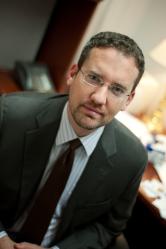The following offers highlights from the third plenary session at the 2017 U.S.-Islamic World Forum. You can find summaries of the other plenary sessions here and here.
As ISIS continues to lose territory in Iraq and Syria, leaders in the region and the West will need to develop a new counterterrorism strategy to adapt to the group’s decentralization. Europe, meanwhile, has seen a surge of ISIS-claimed terrorist attacks on its own soil. In the context of these new challenges, experts on counterterrorism gathered at the 2017 U.S.-Islamic World Forum to discuss what governments, civil society, and the private sector can do.
Moderator Eric Schmitt of The New York Times asked Brookings Distinguished Fellow John Allen about the primary challenges related to ISIS today. Allen stressed the need for U.S. counterterrorism strategy to address the “small pockets” of the organization that have “become networked and even stronger.” General Allen also pointed to ISIS’ increasing use of encrypted forms of communications as a major concern for the intelligence community, which has enabled it to plan strategically, consolidate operationally, and conduct local attacks like those seen in Europe. He emphasized that authorities will need to find a way to penetrate these communication networks without violating the privacy rights of their citizens.
Rym Momtaz, a producer at ABC News who covers ISIS, stressed three factors that contribute to the radicalization of foreign fighters:
- The social disenfranchisement of Muslims, particularly in European societies;
- ISIS’ perverse Islamic glorification that provides young Muslims already involved in petty crimes with a new sense of purpose to restore the glory of the Islamic empire; and
- Political disenfranchisement fueled by issues such as the Palestinian question, the U.S. invasion of Iraq, the ascendance of Iran, and the perceived decline of Sunni Arab populations, among others.
Momtaz echoed General Allen’s sentiments that militarily defeating ISIS is not enough on its own, adding that new counterterrorism strategies will need to address the structural factors that gave rise to ISIS. The flow of foreign fighters can be decreased by tackling certain social grievances, for instance. Momtaz also argued that while locals may be grateful for the fall of ISIS in areas like Mosul, they are resentful of Iraqi security forces and Shiite militias that commit extrajudicial killings and war crimes, which highlights the importance of promoting greater accountability for anti-ISIS forces, especially those on the U.S. payroll.
While Nelly Lahoud, a senior fellow for political Islam at the International Institute for Strategic Studies (IISS), agreed with Momtaz that social grievances play a strong role in driving ISIS recruitment, she also argued that counterterrorism efforts should exploit the fragmentation of what she described as the “jihadi landscape,” or networks of radical groups. She explained that ISIS’ rigid ideology does not lend itself to consensus-building, which it will need to absorb the “small pockets” of radical groups that General Allen described before. Differences between ISIS and other extremist groups will inevitably lead to internal disputes that will leave this jihadi landscape fragmented and weak, she contended.
https://www.youtube.com/watch?v=tIcqhXnM-M8?t=24m40s
Schmitt asked the panelists about how to counter ISIS’ narrative and ideology. While they all agreed that a counter-narrative is imperative for defeating ISIS, they disagreed on how to create and spread it. George Selim—senior vice president for programs at the Anti-Defamation League and formerly the first director of the Office for Community Partnerships at the Department of Homeland Security—argued that the U.S. government needs to work more closely with Muslim leaders. He argued that Muslims can help authenticate a counter-narrative once the government finds one and play a critical role in expanding and disseminating its message.
Lahoud pushed back, arguing that governments should not be in the business of injecting issues into civil society and instead should “stick with what they can do well: good governance.” General Allen agreed, stating that “the top-down government approach is almost always doomed to fail.” He added that instead of tasking the government with creating a counter-narrative, the government should provide resources to Muslim civil leaders who know their communities best, and can take on the mantle of creating a counter-narrative that will resonate better with the Muslim population.
Excellent counterterror panel at #usislam17 : Counter-messaging is a myth (Nelly Lahoud), honest debate needed on root causes (@RymMomtaz ) pic.twitter.com/nG1P6vzyj6
— Joyce Karam (@Joyce_Karam) September 17, 2017
On the role of the local Muslim community, Momtaz emphasized that “the Muslim community [is] the best prevention of terrorism.” Selim agreed, and said the United States should invest more heavily in providing that community with tools to report suspicious activity. He also added that government and civil society need to “step up and raise awareness on hints of radicalism and extremism” to the public.
The panelists agreed that counterterrorism efforts will need to be more forward-thinking, with a focus on preventing radicalization at the source. When asked about “the day after” in Syria (i.e., after ISIS is defeated militarily), General Allen explained that countering terror will need to “start way up stream” by recognizing that there are base causal factors that drive radicalization, which will blend into extremism and create a reservoir of fighters for extremist groups. Momtaz stressed the need “to have an honest conversation on the roots of terror.” She asked: “What are youth rebelling against?” They are, she argued, the people that will make up an ISIS 2.0.
General Allen strongly agreed, and reiterated the need for a counter-narrative to change the trajectory of youth, both in the region and in the West. “Countering terrorism is what we do in 20 years to create a segment of teachers that can inspire young Muslims instead of radicalize young Muslims.”
Dina Yazdani helped author this post.
The Brookings Institution is committed to quality, independence, and impact.
We are supported by a diverse array of funders. In line with our values and policies, each Brookings publication represents the sole views of its author(s).





Commentary
After the fall of ISIS, what’s next for counterterrorism? Experts discuss
October 3, 2017